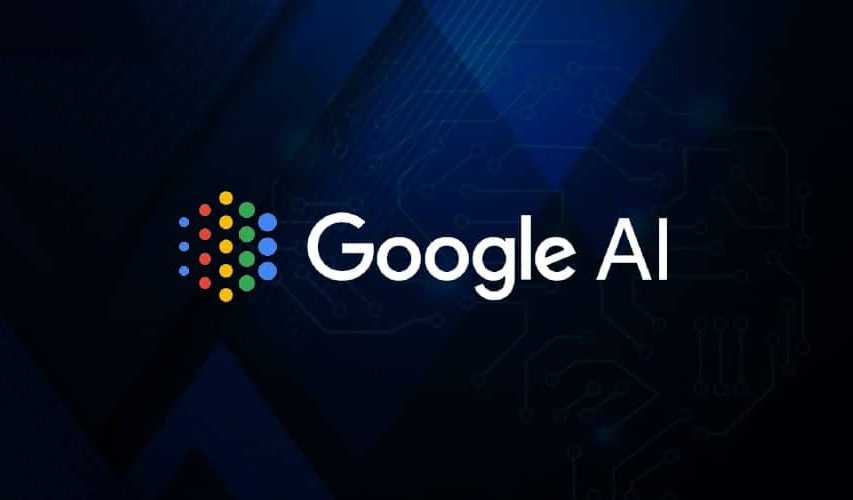Home News Google Google's AI Search Has Left Publishers Nervous
03 June, 2024

In a significant development that is shaking up the digital landscape, Google has announced the integration of advanced artificial intelligence (AI) technologies into its search engine. The move is part of a broader effort to enhance user experience and keep up with rapid advances in AI that have left publishers struggling to adapt to new dynamics. As Google's AI begins to redefine the way search retrieves and presents information, the implications for publishers are profound and multifaceted.
The Evolution of Google's Search
Google's search engine has long been the cornerstone of its business, dominating the market with a near-monopoly on Internet searches. The company's commitment to improving search accuracy and relevance has driven continued innovation. From the early days of simple keyword matching to the introduction of sophisticated algorithms like PageRank and the recent BERT (Bidirectional Encoder Representations from Transformers), Google has consistently aimed to deliver the most relevant results to its users.
The integration of AI into search represents the latest leap in this evolution. Leveraging technologies like natural language processing (NLP), machine learning, and deep learning, Google's AI Search is designed to understand the context and nuance of queries better than ever before. This means that users are likely to receive more accurate and personalized results, with the search engine anticipating their needs and providing contextually aware answers.
What's New In AI Search?
The new AI-powered search engine can interpret complex queries and provide answers in a more interactive and intuitive way. Unlike traditional search, which relies heavily on matching keywords and ranking web pages based on various signals, AI search can understand the intent behind a query and generate responses that match what users are actually looking for. Are more aligned with what one is wanting.
For example, a user is asking, "What are the health benefits of the Mediterranean diet?" Instead of a simple list of search results, one may receive a detailed response summarizing the various health benefits, supported by links to official sources. This shift toward providing answers and comprehensive information directly within the search results page is a significant shift from the traditional model.
Impact on Publishers
For publishers, the implications of Google's AI search are both challenging and complex. Historically, publishers have relied on search engine optimization (SEO) to drive traffic to their websites. By optimizing content to rank higher in Google's search results, publishers can attract a steady stream of visitors, which in turn translates into advertising revenue and subscription sales. However, as the goal of AI search is to provide answers directly within the search results page, the dynamics of traffic flow are being fundamentally changed.
Declining Click-Through Rates
One of the most immediate concerns for publishers is the potential decline in click-through rates (CTR). If users can get the information they need directly from search results without clicking through to the source website, the amount of traffic to publishers' sites can be significantly reduced. This scenario poses a direct threat to the traditional ad-based revenue model that many publishers rely on.
Content Visibility and Engagement
With AI curating content and providing summarized answers, the visibility of individual publishers' content can be reduced. AI's ability to synthesize information from multiple sources into a cohesive response may mean that users are less likely to visit original articles. This change not only impacts ad revenue, but also engagement metrics that are important to publishers, such as time spent on site and page views.
Changing SEO Strategies
The integration of AI into search requires a reevaluation of SEO strategies. Traditional SEO strategies focused on keyword optimization and backlinking may lose their effectiveness. Publishers now need to consider how to make their content more suitable for AI interpretation, ensuring that their articles are structured in a way that AI can easily extract and present information. This may include greater emphasis on schema markup, structured data, and clear, concise, and well-organized content.
Publishers' Response
Faced with these challenges, publishers are exploring various strategies to adapt to the new AI-powered search environment.
Enhancing Content Quality
One response is to double the quality of the content. As AI becomes more adept at understanding and evaluating content, the importance of producing high-quality, authoritative and original content cannot be underestimated. Publishers who can establish themselves as trusted sources are more likely to have their content featured prominently in AI-generated responses.
Diversify Traffic Sources
Another strategy involves diversifying traffic sources beyond Google search. Publishers are increasingly turning to social media, email newsletters and other digital platforms to drive traffic. By building a loyal audience across multiple channels, they can mitigate the impact of a potential drop in search-driven traffic.
Collaborating With Google
Some publishers are looking to collaborate more closely with Google to ensure that their content is optimized for AI search. This may include participating in Google's various content initiatives, such as Google News and Discover, which can help maintain visibility and increase traffic.
Exploring Alternative Revenue Models
Given the potential disruption in advertising revenues, publishers are also exploring alternative revenue models. Subscription services, subscription programs, and paywalls are becoming more common as publishers look to create more direct and reliable revenue streams. By focusing on building a loyal customer base, publishers can reduce their reliance on search-driven advertising revenue.
Google's Perspective
From Google's perspective, the integration of AI into search is a natural progression aimed at improving the user experience. By providing more accurate and contextually relevant results, Google aims to maintain its dominance in the search market. The company argues that AI search benefits publishers by uncovering higher quality content and driving more meaningful engagement.
Google has also stressed its commitment to supporting the publishing ecosystem. Through initiatives like the Google News Initiative and various partnerships with media organizations, Google aims to help publishers navigate the changing digital landscape. The company has introduced tools and programs designed to enhance publishers' digital capabilities, from data analytics to monetization strategies.
Wider Implications for the Internet
The shift toward AI-powered search has broad implications for the Internet and digital content as a whole. As AI becomes more integral to the way we access and consume information, questions arise about its impact on information diversity and the democratic nature of the web.
Information Diversity
One concern is that AI's ability to curate and synthesize information could lead to homogenization of content. If AI prioritizes certain types of information or sources, there is a risk that less mainstream voices and viewpoints could be marginalized. Ensuring that AI algorithms are designed to promote diverse types of content is a significant challenge.
Role of Human Judgment
Although AI can process and analyze large amounts of data, it still lacks the nuanced understanding and critical thinking provided by human judgment. Relying too heavily on AI for information retrieval and curation could diminish the role of human editors and journalists, who play a vital role in verifying facts and providing context.
Privacy and Ethical Considerations
The use of AI in search also raises important privacy and ethical considerations. AI systems rely on large amounts of data to function effectively, raising concerns about data privacy and security. Additionally, the ethical implications of AI-powered decision making, particularly in terms of bias and fairness, need to be carefully considered.
Conclusion
Google's integration of AI into its search engine is an important milestone in the evolution of digital information retrieval. While this move promises to enhance the user experience by delivering more accurate and contextually relevant results, it also presents considerable challenges for publishers.
As the digital landscape evolves, publishers must adapt to the changing dynamics by enhancing content quality, diversifying traffic sources, and exploring new revenue models. Collaboration with Google and a focus on maintaining information diversity and ethical standards will be key in navigating the new AI-powered search environment.
Ultimately, the success of AI discovery will depend on striking a balance between technological progress and the preservation of a diverse, vibrant and democratic information ecosystem. As publishers struggle to adapt, the broader impact on the Internet and society at large remains an important area of focus.

